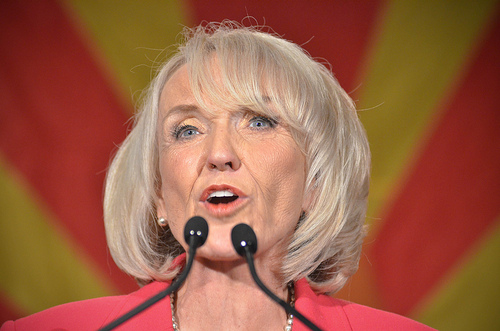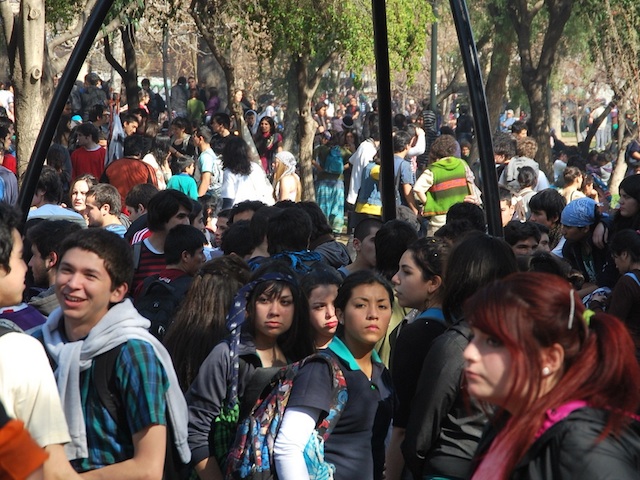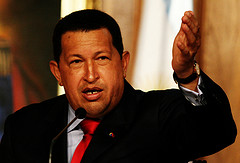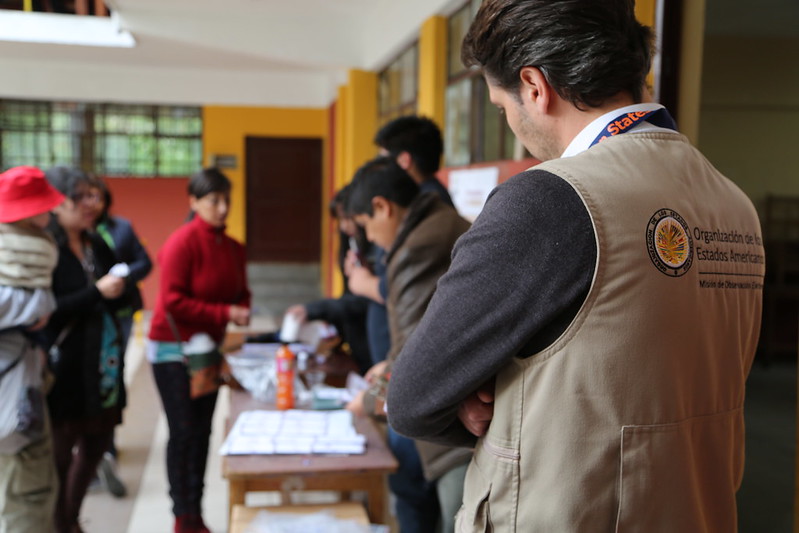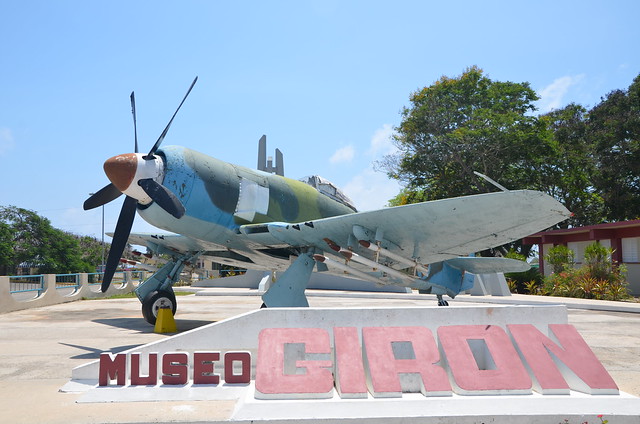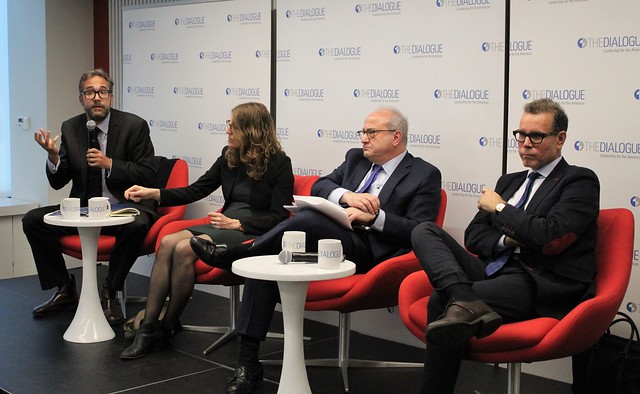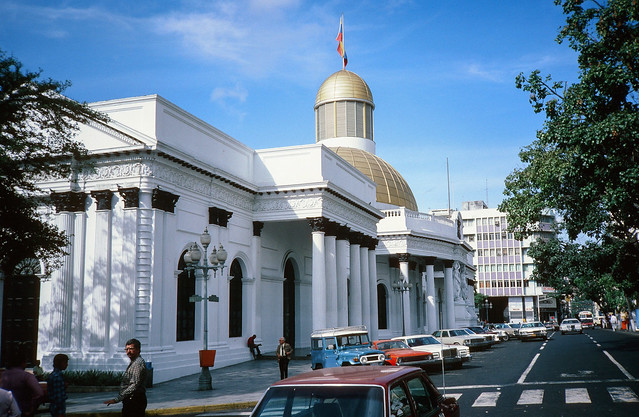
Latin America: Week in Review
Guaidó Deputy Arrested in Government Crackdown
May 10, 2019 By Staff
TODAY IN LATIN AMERICA
VENEZUELA: Intelligence agents arrested the vice president of the National Assembly, Edgar Zambrano, on Wednesday night in the capital of Caracas. This is the first arrest of a major opposition figure since last week’s attempts to inspire a military uprising against the Maduro administration. In the wake of the arrest, opposition politicians have vowed to continue protests and remove President Nicolás Maduro from power. Opposition leader Juan Guaidó portrayed the arrest of his deputy as an act of desperation by a government unable to trust its own leaders.
At least nine other lawmakers are facing detention on charges including treason related to last week’s unsuccessful uprising. One of the targeted deputies, Juan Andrés Mejía described the retaliation by the Maduro administration as “absolutely illegal and unconstitutional.” Another lawmaker, Marianela Magallanes, has reportedly taken refuge in the residence of the Italian ambassador.
HEADLINES FROM THE WESTERN HEMISPHERE
NORTH AMERICA
BORDER: An Associated Press report found that as many as 13,000 immigrants are currently on wait lists to enter the country. The Trump administration began limiting the number of asylum seekers processed daily at main border crossings last year, in a system called “metering,” resulting in some cities seeing days pass without anyone being processed. The line in the border city of Tijuana is the longest with about 4,800 people waiting and 80 processed each day.
MEXICO: Mexico’s inflation rate rebounded to 4.41% in April, the highest level this year. Reports from the National Institute of Statistics and Geography (INEGI) show that inflation numbers from last month are a result of the rise in costs of some agricultural goods and package tourism services during Holy Week. Products with rising prices included avocados, onions, air transport, package tourist services, restaurants, taquerias and hotels.
MEXICO: President Andrés Manuel López Obrador (AMLO) announced yesterday that the government will collaborate with state-owned oil company Pemex to build a new oil refinery, after international company bids to undertake the project failed to meet the Mexican government’s timeline and budget requirements. AMLO said that Energy Secretary Rocío Nahle and Pemex Construction will lead the $8 billion refinery project at the port of Dos Bocas in the state of Tabasco with a starting date of June 2 and aim to complete the project in three years. The president highlighted this project as critical to Mexico’s energy independence.
CENTRAL AMERICA
BELIZE: Belizeans voted to ask the United Nations International Court of Justice (ICJ) in The Hague to settle the country’s territorial dispute with Guatemala. About 55% of the voters approved the motion for the matter to be transferred to the ICJ. Belizeans also voted overwhelmingly for the same motion in a 2018 referendum. With Guatemala claiming over half of Belize’s territory as belonging to it, both countries agreed in 2008 to allow the citizens to vote on whether the dispute should be settled by the ICJ. Guatemala’s government has welcomed the results and agreed to work with the Belizean government on the next steps toward a resolution.
CARIBBEAN
PUERTO RICO: Yesterday, the Financial Oversight and Management Board for Puerto Rico held its 16th public meeting during which it released its 2019 fiscal plan for the island. The federal oversight board voted to extend its supervision power over all 78 municipalities of the island for the first time. Ten municipalities were selected due to their varying “political representation, size and financial strength” to start in a pilot program in which they will be required to submit fiscal plans and budgets for 2019 to the board. The board outlined various aspects of their fiscal plan, including an increase in funding for the island’s health, education and public safety sectors. The board predicted an economic growth of 4% for the island’s 2019 fiscal year.
CUBA: On Wednesday, the Canadian government announced that its embassy in Havana would stop processing visa applications immediately. The embassy will no longer process visitor visas, study and work permits and permanent residence interviews as a result of the staff reductions announced in January following the unexplained health incidents that affected Canadian and American diplomats stationed in Havana. Cubans will still be able to apply online or in a third country.
SOUTHERN CONE
BRAZIL: Yesterday, former President Michel Temer was arrested for the second time on graft charges. Temer was taken to the headquarters of the federal police in the city of São Paulo, where he will stay for a night. As a former president, he is entitled to special accommodations. The federal judge ordered him to remain in jail while he’s investigated for a number of cases in regards to Operation Car Wash, one of the biggest corruption scandals in Brazilian history.
ARGENTINA: Yesterday, Héctor Olivares, a representative of La Rioja province, was shot and seriously injured and a provincial official was killed near the congressional building in the capital of Buenos Aires. Olivares is being treated for gunshot wounds to his abdomen. The provincial official was identified by Telam state news agency as Miguel Marcelo Yadón, who worked in the La Rioja province’s federal electric transportation system. The two men were reportedly friends since childhood. In an address on national television, President Mauricio Macri said, “We’re praying for Héctor’s life.”
